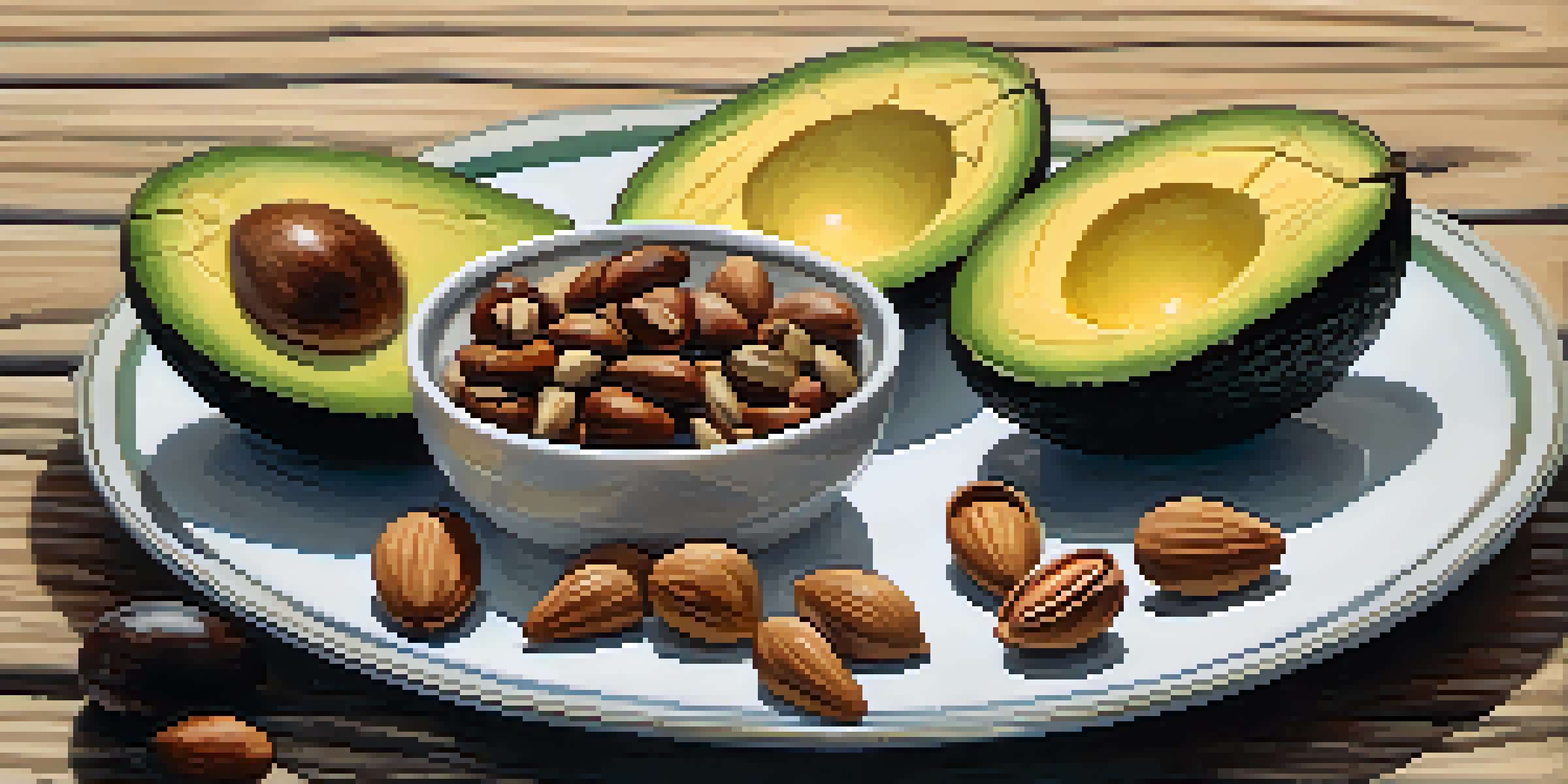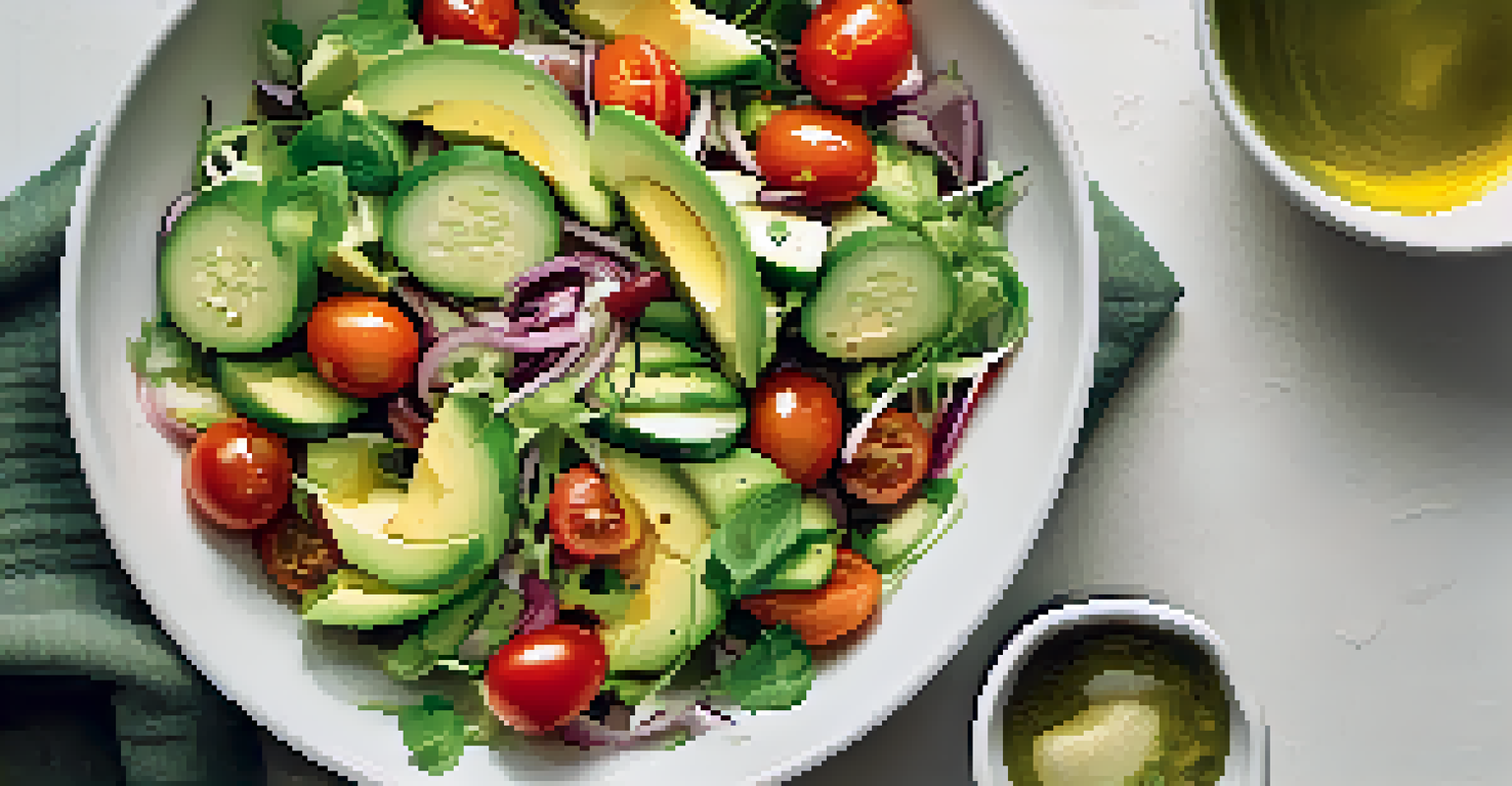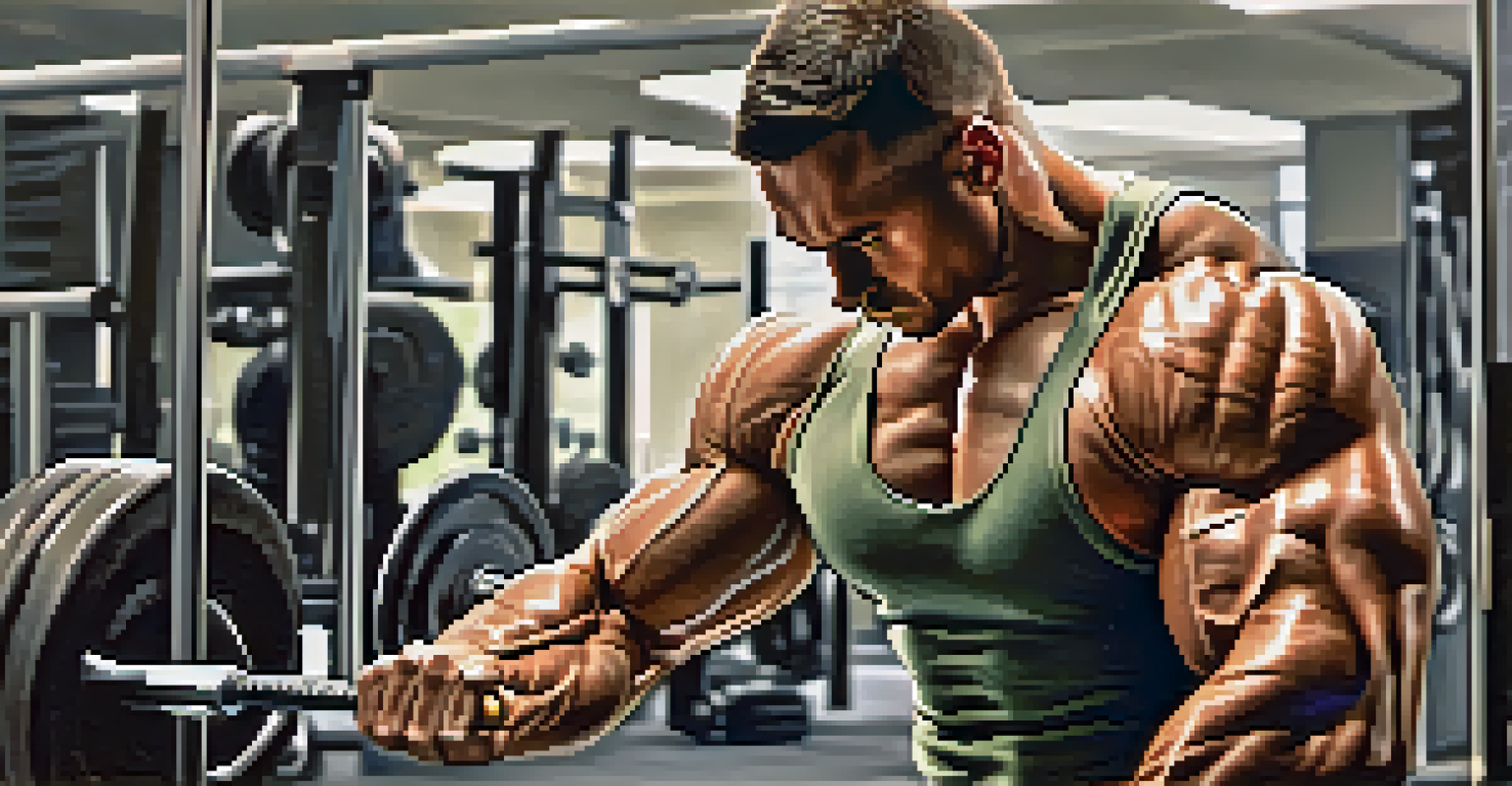Does Eating Fat Make You Fat? The Truth for Bodybuilders

Understanding Dietary Fats: The Good, the Bad, and the Ugly
When it comes to dietary fats, not all are created equal. There are three main types of fats: saturated, unsaturated, and trans fats. While saturated fats can be found in animal products and certain oils, unsaturated fats, like those from avocados and nuts, are considered healthier. Trans fats, often found in processed foods, should be avoided as much as possible due to their harmful effects on health.
Fat is not the enemy. It is an essential nutrient that your body needs to function properly.
For bodybuilders, understanding these different types is crucial. Unsaturated fats can provide essential fatty acids that aid in muscle recovery and hormone production. On the other hand, an excessive intake of saturated and trans fats may lead to unwanted weight gain and health issues, which can hinder your performance and goals.
Ultimately, choosing the right fats can support your bodybuilding journey. Incorporating healthy fats into your diet not only helps in maintaining energy levels but also promotes overall well-being. So, knowing the difference can play a significant role in your nutrition strategy.
Calories in vs. Calories out: The Fat Equation
The age-old adage 'calories in, calories out' is fundamental when discussing weight management. Simply put, if you consume more calories than you burn, you will gain weight, regardless of whether those calories come from fats, carbohydrates, or proteins. This means that eating fat alone won't make you fat; it’s the overall caloric balance that counts.

For bodybuilders, this balance is essential to understand. Many people believe that cutting out fats will lead to weight loss, but this is not always true. Instead, focusing on the total caloric intake while ensuring you meet your macronutrient needs can help you achieve your fitness goals without sacrificing fat intake.
Types of Fats Matter
Understanding the differences between saturated, unsaturated, and trans fats is essential for bodybuilders to optimize their nutrition.
In fact, incorporating healthy fats into your diet can actually enhance your performance. They provide a concentrated source of energy, which is particularly beneficial during long workouts. So, instead of fearing fat, it’s better to understand how to balance your overall diet.
The Role of Fats in Muscle Building and Recovery
Fats play a vital role in muscle building and recovery, which is often overlooked. Healthy fats, especially omega-3 fatty acids found in fish and flaxseeds, can reduce inflammation and promote healing after intense workouts. This means that including these fats in your diet can help you bounce back more quickly between sessions.
You are what you eat, so don't be fast, cheap, easy, or fake.
Moreover, fats are essential for hormone production, including testosterone, which is crucial for muscle growth. A diet low in healthy fats may lead to hormonal imbalances that could hinder your bodybuilding progress. Ensuring you get enough dietary fat can help optimize your hormone levels and support muscle development.
Incorporating sources of healthy fats, like olive oil, avocados, and nuts, can provide the necessary building blocks for optimal recovery. This not only benefits your body but also keeps you feeling satisfied, preventing you from reaching for unhealthy snacks post-workout.
Fat as a Source of Energy for Endurance Training
For bodybuilders who also engage in endurance training, dietary fat serves as an important energy source. While carbohydrates are often the go-to for quick energy, fats provide a more sustained release, which can be beneficial during longer sessions. This means that a balanced intake of both macros can enhance performance.
When your body adapts to using fat as a fuel source, it can improve your endurance and stamina. This is particularly helpful in bodybuilding, where extended workouts can lead to fatigue. By incorporating healthy fats into your diet, you can ensure that your body has the energy it needs to power through challenging routines.
Calories Balance is Key
Focusing on the overall caloric intake rather than simply cutting fats is crucial for effective weight management and performance.
Additionally, consuming fats before a workout can help maintain energy levels throughout your session. Pairing healthy fats with carbohydrates can create a powerful pre-workout meal, giving you the best of both worlds.
Debunking Myths: Fat and Weight Gain
There are many myths surrounding dietary fat and weight gain that can create confusion. One common misconception is that eating fat directly translates to gaining fat. However, it’s essential to recognize that weight gain occurs when there’s a caloric surplus, regardless of the macronutrient source.
Another myth is that low-fat diets are the key to losing weight, which can lead to nutritional deficiencies. Many people fall into the trap of eliminating fats entirely, thinking this will help them shed pounds. In reality, this can backfire, leading to cravings and binge eating, which may increase overall caloric intake.
By debunking these myths, bodybuilders can make informed choices about their diets. Embracing healthy fats while maintaining a balanced caloric intake is the key to reaching fitness goals without unnecessary restrictions.
Practical Tips for Incorporating Healthy Fats
Incorporating healthy fats into your diet doesn’t have to be complicated. Start by adding sources of unsaturated fats to your meals, such as avocados, nuts, and seeds. These can be easily included in salads, smoothies, or as snacks, providing essential nutrients without overwhelming your caloric intake.
Another great tip is to use healthy oils when cooking. Olive oil and coconut oil are fantastic options that add flavor while delivering beneficial fats. Just be mindful of portion sizes, as oils are calorie-dense, and moderation is key.
Healthy Fats Aid Recovery
Incorporating healthy fats into your diet can enhance muscle recovery and hormonal balance, supporting bodybuilding efforts.
Lastly, consider meal prepping to ensure you have healthy fat options readily available. By planning your meals ahead of time, you can easily incorporate healthy fats into your diet, making it simpler to reach your bodybuilding goals.
Finding the Right Balance: Fat Intake for Bodybuilders
Finding the right balance of fats in your diet is crucial for optimal performance and recovery. The general recommendation is to aim for around 20-35% of your daily caloric intake to come from fats, but individual needs may vary based on activity levels and personal goals. It’s essential to listen to your body and adjust accordingly.
Additionally, consider tracking your macronutrient intake to ensure you’re meeting your goals. This can help you identify if you need to increase or decrease your fat intake based on your performance and recovery. With the right tools and resources, you can easily tailor your diet to suit your bodybuilding journey.

Ultimately, achieving the perfect balance of fats is about understanding your body's needs and preferences. Embracing healthy fats as part of a well-rounded diet can support your bodybuilding goals, enhance your overall health, and make your fitness journey more enjoyable.